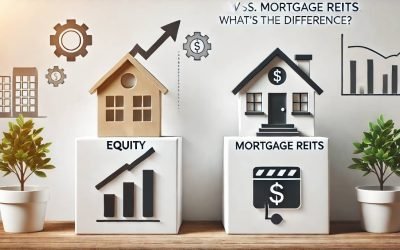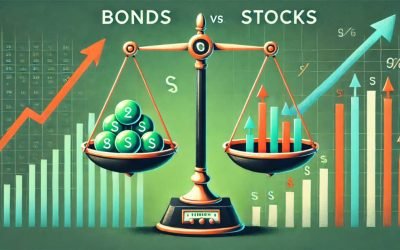Understanding the Fundamentals of Commercial Real Estate Investing
Commercial real estate investing can be a lucrative venture, offering substantial returns and portfolio diversification. However, it requires a solid understanding of the market, investment strategies, and the various types of commercial properties available. This article delves into the essential basics of commercial real estate investing, providing valuable insights for both novice and seasoned investors.
Types of Commercial Real Estate
Commercial real estate encompasses a wide range of property types, each with its own set of characteristics and investment potential. Understanding these types is crucial for making informed investment decisions.
Office Buildings
Office buildings are one of the most common types of commercial real estate. They can range from small, single-tenant buildings to large skyscrapers housing multiple businesses. Office buildings are typically classified into three categories:
- Class A: High-quality buildings with modern amenities, prime locations, and high rental rates.
- Class B: Good quality buildings with fewer amenities and lower rental rates than Class A properties.
- Class C: Older buildings with basic amenities and lower rental rates, often requiring renovation.
Retail Properties
Retail properties include shopping centres, strip malls, and standalone stores. These properties are leased to businesses that sell goods and services directly to consumers. Retail properties can be further divided into:
- Shopping Centres: Large complexes with multiple retail stores, often anchored by major department stores.
- Strip Malls: Smaller complexes with a row of retail stores, typically located along major roads.
- Standalone Stores: Individual retail buildings, often occupied by a single tenant.
Industrial Properties
Industrial properties are used for manufacturing, warehousing, and distribution. These properties are typically located in industrial zones and can include:
- Manufacturing Facilities: Buildings used for the production of goods.
- Warehouses: Buildings used for storage and distribution of goods.
- Flex Spaces: Buildings that can be used for a combination of manufacturing, warehousing, and office space.
Multifamily Properties
Multifamily properties include apartment buildings and other residential properties with multiple units. These properties generate rental income from tenants and can range from small duplexes to large apartment complexes.
Special Purpose Properties
Special purpose properties are designed for specific uses and may include hotels, medical facilities, and entertainment venues. These properties often require specialised knowledge and management.
Key Factors to Consider in Commercial Real Estate Investing
Investing in commercial real estate involves careful consideration of several key factors. Understanding these factors can help investors make informed decisions and maximise their returns.
Location
Location is one of the most critical factors in commercial real estate investing. Properties in prime locations with high foot traffic, good accessibility, and proximity to amenities tend to attract higher rental rates and have lower vacancy rates. Investors should consider the following aspects of location:
- Demographics: The population size, age distribution, and income levels in the area.
- Economic Conditions: The local economy’s strength, including employment rates and business activity.
- Infrastructure: The availability of transportation, utilities, and other essential services.
Market Trends
Understanding market trends is essential for identifying investment opportunities and risks. Investors should stay informed about:
- Supply and Demand: The balance between available properties and tenant demand.
- Rental Rates: Trends in rental rates for different types of properties.
- Vacancy Rates: The percentage of vacant properties in the market.
Property Condition
The condition of a property can significantly impact its value and potential returns. Investors should conduct thorough inspections to assess:
- Structural Integrity: The building’s overall condition, including the foundation, roof, and walls.
- Mechanical Systems: The condition of heating, ventilation, air conditioning, plumbing, and electrical systems.
- Cosmetic Features: The property’s appearance, including interior finishes and landscaping.
Financial Analysis
Conducting a detailed financial analysis is crucial for evaluating the potential returns and risks of a commercial real estate investment. Key financial metrics to consider include:
- Net Operating Income (NOI): The property’s income after operating expenses are deducted.
- Capitalisation Rate (Cap Rate): The ratio of NOI to the property’s purchase price, indicating the expected rate of return.
- Cash Flow: The net income generated by the property after debt service and other expenses.
- Return on Investment (ROI): The overall return on the investment, including appreciation and cash flow.
Financing Options for Commercial Real Estate
Securing financing is a critical step in commercial real estate investing. Various financing options are available, each with its own advantages and disadvantages.
Traditional Bank Loans
Traditional bank loans are a common financing option for commercial real estate. These loans typically offer competitive interest rates and terms but may require substantial down payments and strong credit profiles.
Commercial Mortgage-Backed Securities (CMBS)
CMBS are loans that are bundled together and sold as securities to investors. These loans can offer more flexible terms and lower interest rates but may come with higher fees and more complex structures.
Private Lenders
Private lenders, including individuals and private equity firms, can provide financing for commercial real estate investments. These loans may offer more flexible terms and faster approval processes but often come with higher interest rates.
SBA Loans
The Small Business Administration (SBA) offers loans for commercial real estate through its 504 and 7(a) loan programs. These loans can provide favourable terms and lower down payments but may have more stringent eligibility requirements.
Steps to Successful Commercial Real Estate Investing
Investing in commercial real estate requires a strategic approach and careful planning. The following steps can help investors achieve success in their commercial real estate ventures.
Define Investment Goals
Clearly defining investment goals is the first step in any successful commercial real estate investment. Investors should consider their desired returns, risk tolerance, and investment timeline.
Conduct Market Research
Thorough market research is essential for identifying investment opportunities and understanding market conditions. Investors should analyse local market trends, property values, and rental rates.
Build a Strong Team
Successful commercial real estate investing often requires a team of professionals, including real estate agents, attorneys, accountants, and property managers. Building a strong team can provide valuable expertise and support throughout the investment process.
Perform Due Diligence
Conducting due diligence is crucial for assessing the potential risks and rewards of a commercial real estate investment. This process includes property inspections, financial analysis, and reviewing legal documents.
Develop a Financing Strategy
Securing financing is a critical step in commercial real estate investing. Investors should explore various financing options and develop a strategy that aligns with their investment goals and financial situation.
Implement a Management Plan
Effective property management is essential for maximising returns and maintaining the value of a commercial real estate investment. Investors should develop a management plan that includes tenant relations, maintenance, and financial management.
Risks and Challenges in Commercial Real Estate Investing
While commercial real estate investing can offer substantial rewards, it also comes with inherent risks and challenges. Understanding these risks can help investors make informed decisions and develop strategies to mitigate them.
Market Volatility
Commercial real estate markets can be volatile, with fluctuations in property values, rental rates, and vacancy rates. Investors should stay informed about market trends and be prepared for potential downturns.
Financing Risks
Securing financing for commercial real estate investments can be challenging, particularly during economic downturns. Investors should have contingency plans in place and maintain strong credit profiles to mitigate financing risks.
Property Management Challenges
Effective property management is essential for maintaining the value of a commercial real estate investment. Investors may face challenges related to tenant relations, maintenance, and financial management.
Regulatory and Legal Risks
Commercial real estate investments are subject to various regulations and legal requirements. Investors should stay informed about relevant laws and work with legal professionals to ensure compliance.
Conclusion
Commercial real estate investing offers significant potential for financial growth and portfolio diversification. By understanding the different types of commercial properties, key investment factors, financing options, and potential risks, investors can make informed decisions and achieve success in their commercial real estate ventures. While challenges exist, careful planning, thorough research, and effective management can help investors navigate the complexities of the commercial real estate market and maximise their returns.

Q&A Section
| Question | Answer |
|---|---|
| What are the main types of commercial real estate? | The main types of commercial real estate include office buildings, retail properties, industrial properties, multifamily properties, and special purpose properties. |
| Why is location important in commercial real estate investing? | Location is crucial because properties in prime locations with high foot traffic, good accessibility, and proximity to amenities tend to attract higher rental rates and have lower vacancy rates. |
| What is Net Operating Income (NOI)? | Net Operating Income (NOI) is the property’s income after operating expenses are deducted. It is a key metric for evaluating the financial performance of a commercial real estate investment. |
| What are some common financing options for commercial real estate? | Common financing options include traditional bank loans, commercial mortgage-backed securities (CMBS), private lenders, and SBA loans. |
| What are some risks associated with commercial real estate investing? | Risks include market volatility, financing challenges, property management issues, and regulatory and legal risks. |















 How to trade CFD? (00:49)
How to trade CFD? (00:49) How to trade binary options*? (01:22)
How to trade binary options*? (01:22) Forex. How to start? (01:01)
Forex. How to start? (01:01)